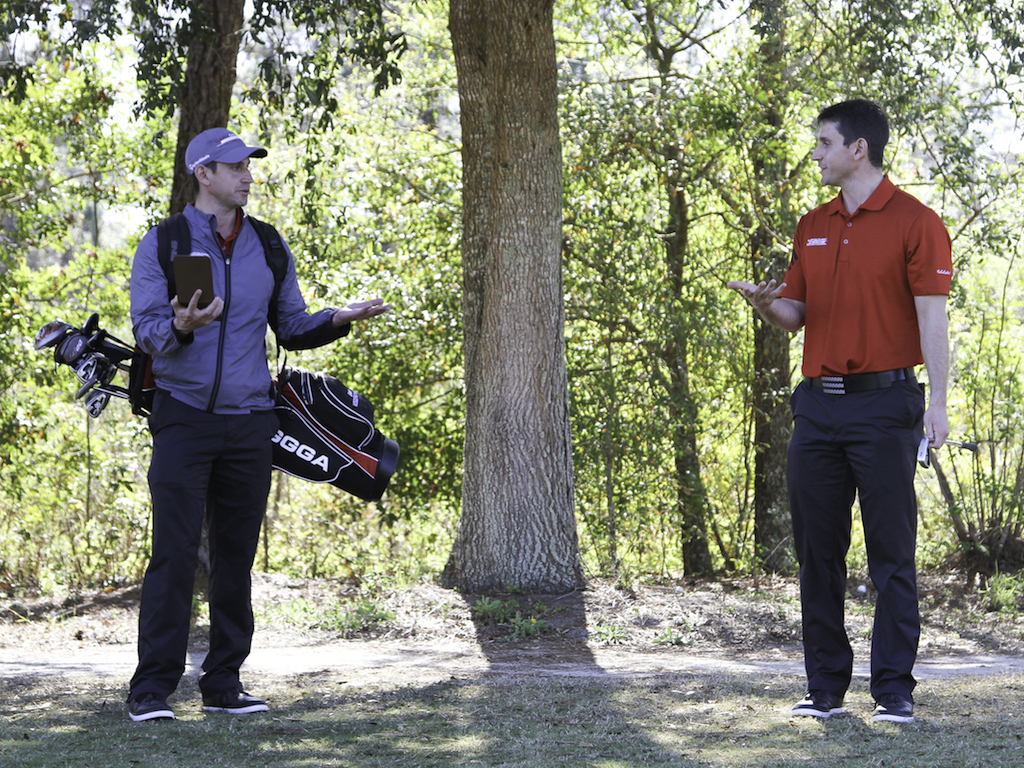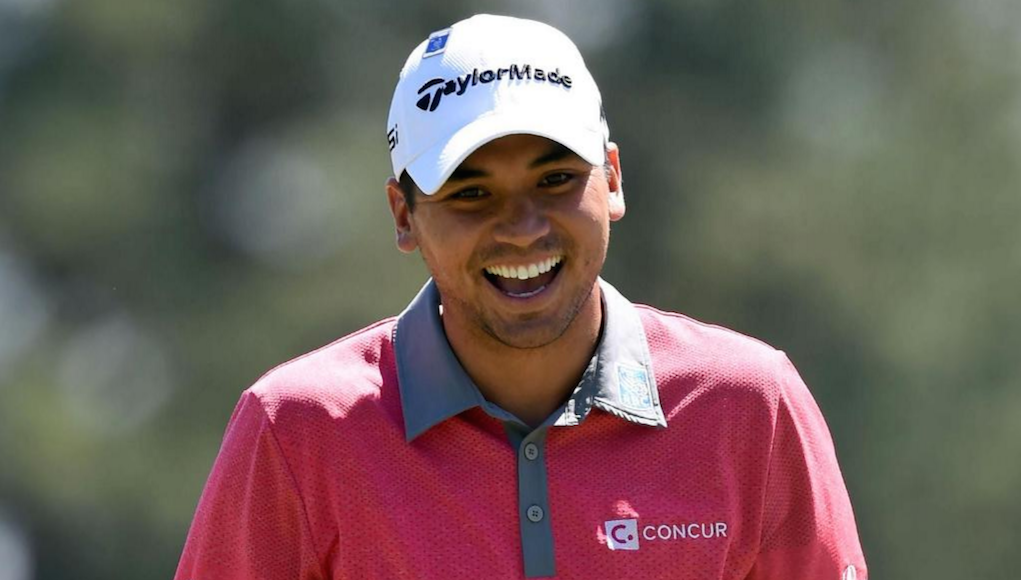Opinion & Analysis
Vosgerichian: Thinking Like a Champion

Great golf and playing up to your full potential all starts from within your mind.
Henry Ford put it simply and eloquently, “Whether you believe you can or you believe you can’t – you are right.”
The thoughts and beliefs you have will either set you up for success or set you up for a lack of success. This is why my focus as The Director of Mental Training at The Gary Gilchrist Golf Academy is to get our players to Think Like a Champion.
Self-belief is as important as a great swing and a great short game in golf. You need to believe in yourself and your ability. You can have all the ability in the world, but if you don’t believe you can pull a shot off when it matters you will dramatically limit your chances of pulling off that shot successfully.
Tiger Woods put it similar to Henry Ford.
“The road to failure is paved with negativity. If you think you can’t do something, chances are you won’t be able to.”
The power of thought in creating action is extremely important. A positive solution-oriented focus leads to positive results and outcomes, while negative distracting thoughts will lead to inefficient haphazard results and outcomes.
One of the keys to developing and mastering your attitude and outlook is by mastering how you think and talk to yourself. Master your thoughts and you will master your attitude and outlook. Golf will still be demanding and you will still face challenges, but the challenges will make you better and mentally stronger.
Follow these five tips to kickstart your thinking and get on your way to thinking like a champion.
Be your own best caddie
All too often on the golf course, golfers talk to themselves in negative ways and say things they would never say to their playing partners, even if their partners were playing against them. Golf is a game of sportsmanship and class, but a lot of the time golfers will belittle and berate themselves. On the other hand, if you were caddying for someone else, you would stay positive and your focus would be to keep them positive and believing in themselves. So talk to yourself the way that you would want your own best caddy to talk to you. Also remember, this is not only for the golf course – always be your own best friend, your biggest fan, and your greatest coach.
See setbacks & challenges as temporary
There are two ways to view the length of a negative situation – very short-lived and long-lived. The truth is that the majority of situations last a second, however, our thoughts hold on to them much longer. Not only do some people replay bad memories over and over again, but they also believe that a bad situation will always happen in the future. If you miss a shot, it was only one shot and it lasted a second. It doesn’t mean that you will continue to hit shots in that manner. You can choose to forget and move-on.
Focus on your successes
What’s wrong is always available, but so is what’s right. It’s a person choice of what they are going to focus on. Focusing on what is right and what your successes are will always lead to better results and a better mindset. It will also lead to better physical health. So, if you want confidence and a great golf game, learn to focus on your successes. I guarantee you, there is always a positive!
See opportunities in challenges and adversity
Every challenge is an opportunity to prove that you can handle it. Become more resilient and build character. It is also an opportunity to find a solution and get better. Whether it’s the ball not going where you want it to, or getting over a difficult loss; something can be learned. Once you see the lesson, put it into action.
Ask yourself good questions
The way the mind works, it always wants to fill in gaps and continue the conversation. Think about it. If you went up to someone at a bus stop and asked the person sitting there a question and they didn’t answer you, it would be considered rude. Your mind doesn’t intentionally want to be rude, so it answers. But if you ask a bad question, it may still be rude. For example, if you ask, “Why I’m I such a loser?” Your brain will comeback with a list of reasons. But if you ask, “What was the best shot I hit today?” it will comeback with a better answer. When you ask yourself good questions, you get good responses, which helps breed confidence and mental toughness. If you ask bad questions, however, you will get bad answers which breed doubt and fear.
Follow these five tips and you will be well on your way to thinking like a champion.
Opinion & Analysis
The 2 primary challenges golf equipment companies face

As the editor-in-chief of this website and an observer of the GolfWRX forums and other online golf equipment discourse for over a decade, I’m pretty well attuned to the grunts and grumbles of a significant portion of the golf equipment purchasing spectrum. And before you accuse me of lording above all in some digital ivory tower, I’d like to offer that I worked at golf courses (public and private) for years prior to picking up my pen, so I’m well-versed in the non-degenerate golf equipment consumers out there. I touched (green)grass (retail)!
Complaints about the ills of and related to the OEMs usually follow some version of: Product cycles are too short for real innovation, tour equipment isn’t the same as retail (which is largely not true, by the way), too much is invested in marketing and not enough in R&D, top staffer X hasn’t even put the new driver in play, so it’s obviously not superior to the previous generation, prices are too high, and on and on.
Without digging into the merits of any of these claims, which I believe are mostly red herrings, I’d like to bring into view of our rangefinder what I believe to be the two primary difficulties golf equipment companies face.
One: As Terry Koehler, back when he was the CEO of Ben Hogan, told me at the time of the Ft Worth irons launch, if you can’t regularly hit the golf ball in a coin-sized area in the middle of the face, there’s not a ton that iron technology can do for you. Now, this is less true now with respect to irons than when he said it, and is less and less true by degrees as the clubs get larger (utilities, fairways, hybrids, drivers), but there remains a great deal of golf equipment truth in that statement. Think about it — which is to say, in TL;DR fashion, get lessons from a qualified instructor who will teach you about the fundamentals of repeatable impact and how the golf swing works, not just offer band-aid fixes. If you can’t repeatably deliver the golf club to the golf ball in something resembling the manner it was designed for, how can you expect to be getting the most out of the club — put another way, the maximum value from your investment?
Similarly, game improvement equipment can only improve your game if you game it. In other words, get fit for the clubs you ought to be playing rather than filling the bag with the ones you wish you could hit or used to be able to hit. Of course, don’t do this if you don’t care about performance and just want to hit a forged blade while playing off an 18 handicap. That’s absolutely fine. There were plenty of members in clubs back in the day playing Hogan Apex or Mizuno MP-32 irons who had no business doing so from a ballstriking standpoint, but they enjoyed their look, feel, and complementary qualities to their Gatsby hats and cashmere sweaters. Do what brings you a measure of joy in this maddening game.
Now, the second issue. This is not a plea for non-conforming equipment; rather, it is a statement of fact. USGA/R&A limits on every facet of golf equipment are detrimental to golf equipment manufacturers. Sure, you know this, but do you think about it as it applies to almost every element of equipment? A 500cc driver would be inherently more forgiving than a 460cc, as one with a COR measurement in excess of 0.83. 50-inch shafts. Box grooves. And on and on.
Would fewer regulations be objectively bad for the game? Would this erode its soul? Fortunately, that’s beside the point of this exercise, which is merely to point out the facts. The fact, in this case, is that equipment restrictions and regulations are the slaughterbench of an abundance of innovation in the golf equipment space. Is this for the best? Well, now I’ve asked the question twice and might as well give a partial response, I guess my answer to that would be, “It depends on what type of golf you’re playing and who you’re playing it with.”
For my part, I don’t mind embarrassing myself with vintage blades and persimmons chasing after the quasi-spiritual elevation of a well-struck shot, but that’s just me. Plenty of folks don’t give a damn if their grooves are conforming. Plenty of folks think the folks in Liberty Corner ought to add a prison to the museum for such offences. And those are just a few of the considerations for the amateur game — which doesn’t get inside the gallery ropes of the pro game…
Different strokes in the game of golf, in my humble opinion.
Anyway, I believe equipment company engineers are genuinely trying to build better equipment year over year. The marketing departments are trying to find ways to make this equipment appeal to the broadest segment of the golf market possible. All of this against (1) the backdrop of — at least for now — firm product cycles. And golfers who, with their ~15 average handicap (men), for the most part, are not striping the golf ball like Tiger in his prime and seem to have less and less time year over year to practice and improve. (2) Regulations that massively restrict what they’re able to do…
That’s the landscape as I see it and the real headwinds for golf equipment companies. No doubt, there’s more I haven’t considered, but I think the previous is a better — and better faith — point of departure when formulating any serious commentary on the golf equipment world than some of the more cynical and conspiratorial takes I hear.
Agree? Disagree? Think I’m worthy of an Adam Hadwin-esque security guard tackle? Let me know in the comments.
@golfoncbs The infamous Adam Hadwin tackle ? #golf #fyp #canada #pgatour #adamhadwin ? Ghibli-style nostalgic waltz – MaSssuguMusic
Podcasts
Fore Love of Golf: Introducing a new club concept

Episode #16 brings us Cliff McKinney. Cliff is the founder of Old Charlie Golf Club, a new club, and concept, to be built in the Florida panhandle. The model is quite interesting and aims to make great, private golf more affordable. We hope you enjoy the show!
Opinion & Analysis
On Scottie Scheffler wondering ‘What’s the point of winning?’

Last week, I came across a reel from BBC Sport on Instagram featuring Scottie Scheffler speaking to the media ahead of The Open at Royal Portrush. In it, he shared that he often wonders what the point is of wanting to win tournaments so badly — especially when he knows, deep down, that it doesn’t lead to a truly fulfilling life.
View this post on Instagram
“Is it great to be able to win tournaments and to accomplish the things I have in the game of golf? Yeah, it brings tears to my eyes just to think about it because I’ve literally worked my entire life to be good at this sport,” Scheffler said. “To have that kind of sense of accomplishment, I think, is a pretty cool feeling. To get to live out your dreams is very special, but at the end of the day, I’m not out here to inspire the next generation of golfers. I’m not out here to inspire someone to be the best player in the world, because what’s the point?”
Ironically — or perhaps perfectly — he went on to win the claret jug.
That question — what’s the point of winning? — cuts straight to the heart of the human journey.
As someone who’s spent over two decades in the trenches of professional golf, and in deep study of the mental, emotional, and spiritual dimensions of the game, I see Scottie’s inner conflict as a sign of soul evolution in motion.
I came to golf late. I wasn’t a junior standout or college All-American. At 27, I left a steady corporate job to see if I could be on the PGA Tour starting as a 14-handicap, average-length hitter. Over the years, my journey has been defined less by trophies and more by the relentless effort to navigate the deeply inequitable and gated system of professional golf — an effort that ultimately turned inward and helped me evolve as both a golfer and a person.
One perspective that helped me make sense of this inner dissonance around competition and our culture’s tendency to overvalue winning is the idea of soul evolution.
The University of Virginia’s Division of Perceptual Studies has done extensive research on reincarnation, and Netflix’s Surviving Death (Episode 6) explores the topic, too. Whether you take it literally or metaphorically, the idea that we’re on a long arc of growth — from beginner to sage elder — offers a profound perspective.
If you accept the premise literally, then terms like “young soul” and “old soul” start to hold meaning. However, even if we set the word “soul” aside, it’s easy to see that different levels of life experience produce different worldviews.
Newer souls — or people in earlier stages of their development — may be curious and kind but still lack discernment or depth. There is a naivety, and they don’t yet question as deeply, tending to see things in black and white, partly because certainty feels safer than confronting the unknown.
As we gain more experience, we begin to experiment. We test limits. We chase extreme external goals — sometimes at the expense of health, relationships, or inner peace — still operating from hunger, ambition, and the fragility of the ego.
It’s a necessary stage, but often a turbulent and unfulfilling one.
David Duval fell off the map after reaching World No. 1. Bubba Watson had his own “Is this it?” moment with his caddie, Ted Scott, after winning the Masters.
In Aaron Rodgers: Enigma, reflecting on his 2011 Super Bowl win, Rodgers said:
“Now I’ve accomplished the only thing that I really, really wanted to do in my life. Now what? I was like, ‘Did I aim at the wrong thing? Did I spend too much time thinking about stuff that ultimately doesn’t give you true happiness?’”
Jim Carrey once said, “I think everybody should get rich and famous and do everything they ever dreamed of so they can see that it’s not the answer.”
Eventually, though, something shifts.
We begin to see in shades of gray. Winning, dominating, accumulating—these pursuits lose their shine. The rewards feel more fleeting. Living in a constant state of fight-or-flight makes us feel alive, yes, but not happy and joyful.
Compassion begins to replace ambition. Love, presence, and gratitude become more fulfilling than status, profits, or trophies. We crave balance over burnout. Collaboration over competition. Meaning over metrics.
Interestingly, if we zoom out, we can apply this same model to nations and cultures. Countries, like people, have a collective “soul stage” made up of the individuals within them.
Take the United States, for example. I’d place it as a mid-level soul: highly competitive and deeply driven, but still learning emotional maturity. Still uncomfortable with nuance. Still believing that more is always better. Despite its global wins, the U.S. currently ranks just 23rd in happiness (as of 2025). You might liken it to a gifted teenager—bold, eager, and ambitious, but angsty and still figuring out how to live well and in balance. As much as a parent wants to protect their child, sometimes the child has to make their own mistakes to truly grow.
So when Scottie Scheffler wonders what the point of winning is, I don’t see someone losing strength.
I see someone evolving.
He’s beginning to look beyond the leaderboard. Beyond metrics of success that carry a lower vibration. And yet, in a poetic twist, Scheffler did go on to win The Open. But that only reinforces the point: even at the pinnacle, the question remains. And if more of us in the golf and sports world — and in U.S. culture at large — started asking similar questions, we might discover that the more meaningful trophy isn’t about accumulating or beating others at all costs.
It’s about awakening and evolving to something more than winning could ever promise.



















Mike
Feb 14, 2015 at 12:34 am
I fully enjoyed this article. I really like the advice you offer. What I like even more are topics that take on this aspect of the game.
I think we can all feel better about ourselves on the course if we can start to be positive and be in the moment… Great article!!!
leftright
Feb 9, 2015 at 2:42 pm
Has anyone ever thought that you can teach all you want but that person may not be a “I can” person for parts of their life. Not everyone can be very positive about golf or sports but when it comes to something else they may be very good at it. Not everyone is going to be good or bad at everything. A good psychologist will recognize this and work on what the player can do with success. Tiger Woods is an extremely great golfer and had the mental game down at or exceeding the level of all the previous great golfers. He is either the 1st or 2nd best golfer that ever lived depending on who you talk to…but he is a failure in other aspects of his life. The “gluteous” comments were absolutely absurd and point to why he is a wreck currently. Who in their right mind thinks of glutes activating this or that. I have got to admit, it’s the first time I have ever heard them used in this context. Lindsay Vonn better watch out, she will be disappointed in the future because Tiger has a whole boatload of demons he is fighting currently.
other paul
Feb 9, 2015 at 2:32 pm
It just drives me nuts that I can do well at the mental game (positive self talk, I get over a bad shot really fast, and am naturally easy going) yet mechanics can fall apart randomly. I practiced my butt off this winter, used a net, played virtual golf, and all I shot in 4 rounds on vacation was a lousy 87, which is still better then I did last year. But I pretty much thinned every shot I hit for 4 rounds. Need more lessons I guess. And a personal high speed camera.
MRC
Feb 6, 2015 at 9:33 pm
At the end of the day it’s only golf. It’s something we do, not who we are.
Stay positive, breath and enjoy!
Great tips, great article.
Thanks
Mtek VersaSpeed
Feb 6, 2015 at 6:11 pm
Great article Dan, very insightful & helpful to golfers of all skill levels! Yes, getting & staying “in the zone’ or playing like a champion consistently is where the pro or top amatuer seperates themselves from the rest no doubt.
At the top level pro golfer’s know their psyche & their swing mechanic’s intimately, which leads them to be extremely confident in their “games”. I learnt that one without the other (mental + physical game) is where, for the amatuer golfer like me, their game can go a little or a lot awry lol depending on the day lol!
I’m obviously generalising a touch here but the fact remains confidence & trust in your swing (which i eventually found) will come through the right knowledge (theory + teacher), fitted club’s & hard work at the range etc.
Imo having the “right” mental attitude like Dan suggest’s on course (& in life, perhaps) is the second part of the puzzle that helps you pull off the legend shot’s & putt’s just like your favorite pro, get the first part of the puzzle right then combine it with Dan’s great & proven advice, surely you will be on the way to golfing nirvana in no time!
cheer’s,
M. Kaloustian
Mtek Versaspeed
Golfraven
Feb 6, 2015 at 7:27 am
I like all of what you say. Psychology can be a weird thing and can separate the good from the avarage. I see all of that on the golf course and by all means I am not immune to belittling myself at times. However with time comes experience and I started to trust my ability and acknowledge failure as temporary. This can make huge difference on the scorecard and well being at the end of the day.